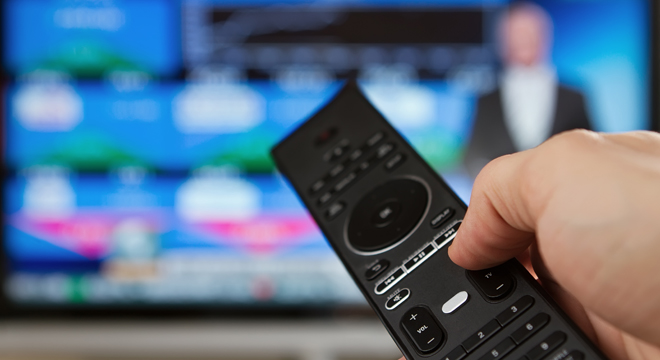A new Pew study shows that Americans still get their campaign news predominantly from TV news, either cable, local, or national broadcasts. The internet is still a major source for political news, but it’s stagnated in Pew’s numbers, with the segment of citizens utilizing online outlets to a little over a third of Americans while the net is still dwarfed by TV’s dominance.
“The number gathering campaign news online, which had nearly tripled between 2000 and 2008, has leveled off in 2012,” Pew wrote. “The one constant over the course of the past four elections is the reach of cable news. Currently, 36% of Americans say they are regularly learning about the candidates or campaign on cable news networks. That is virtually unchanged from previous campaigns, yet cable news is now the top regular source for campaign news.”
But cable’s dominance and the Internet’s slowing of growth may be an issue more to do with the state of the actual 2012 race, rather than general trends in media. “It’s a question of share versus rating,” Michael Dimock, the assistant director of research at the Pew Research Center for the People & the Press and one of the staffers that worked on the study, told TPM in an interview. “The Internet continues to grow, but in a down year, their rating goes down. There’s a smaller market, so to speak.”
The Pew study also shows that there is certainly overlap between those who watch newscasts and seek information online. Two thirds of Americans get their news either “regularly” or “sometimes” from cable, nearly the same as those who go to local television news, and 61 percent that look to the national nightly broadcasts for the same. About 52 percent say the regularly or sometimes go to the internet, and with 32 percent saying they never do.
But nightly broadcasts, a single dose of the day’s news, has been dropping as a share of Americans’ media diet for more than ten years in Pew’s numbers. “The decline in local/network evening news has been part of changing American lives,” Dimock said. “People used to come home and get dinner and watch the news. Who does that anymore? Cable provides a constant competition as well — if someone was interested in finding out what happened that day, they probably already know.”
News from the net, while experiencing growth throughout that same time period, seems to be stuck in the middle — it’s a vibrant space, but the Pew numbers seem to suggest that the medium exposed to greater swings in readership. “In previous campaigns, declining figures for traditional sources were at least partly offset by increasing numbers turning to the internet,” Pew wrote. “But that is not the case in 2012, as the number regularly getting campaign news online has leveled off. This is largely due to a lack of interest in the early 2012 campaign among younger Americans, who have traditionally been the broadest internet news consumers, and who also are less apt to be Republicans.”
Dimock went a bit further, saying that 2012 specifically isn’t exactly enthralling for the kids. “There’s nothing in this campaign that has fundamentally engaged young people,” he said.









